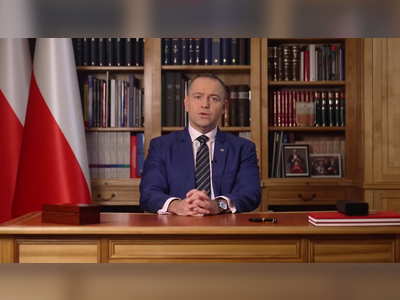Sweden Tightens Asylum Policies: Rejected Applicants Must Leave Before Reapplying
New Regulations Aim to Curb Abuse and Manage Asylum Influx
In a decisive move to tighten its asylum regulations, the Swedish government has announced that individuals whose asylum applications are denied must first leave the country before they can submit another application.
This policy shift is part of a broader strategy aimed at reducing the number of repeat asylum claims and managing the overall influx of asylum seekers more effectively.
The Swedish government, in collaboration with the Sweden Democrats—an influential support party—hopes this new regulation will not only increase the number of repatriations but also act as a deterrent to potential asylum seekers considering Sweden as their destination.
The policy change marks a significant pivot from the country’s previous asylum stance, underscored in the 'record year' of 2015, when Sweden received over 160,000 asylum seekers.
Since then, the numbers have declined substantially, with just 12,644 people applying for asylum in 2023.
This shift reflects a growing trend within Europe, where countries are re-evaluating their immigration and asylum policies in response to domestic pressures and broader geopolitical dynamics.
Proponents of the policy argue that it will uphold the integrity of Sweden’s asylum system by preventing exploitation and ensuring that those in genuine need of protection receive the assistance they require.
However, critics warn that such measures might trap vulnerable individuals in harmful situations, as leaving the country and reapplying could involve significant risks.
This reform presents a complex challenge: balancing national security and humanitarian obligations while navigating the intricate realities of global migration.
As Sweden restructures its approach, the international community will be watching closely.
The outcome may influence immigration policy debates not only within the Nordic countries but also across the European Union, which continues to grapple with migration challenges exacerbated by conflict and instability in various regions around the world.
This policy shift is part of a broader strategy aimed at reducing the number of repeat asylum claims and managing the overall influx of asylum seekers more effectively.
The Swedish government, in collaboration with the Sweden Democrats—an influential support party—hopes this new regulation will not only increase the number of repatriations but also act as a deterrent to potential asylum seekers considering Sweden as their destination.
The policy change marks a significant pivot from the country’s previous asylum stance, underscored in the 'record year' of 2015, when Sweden received over 160,000 asylum seekers.
Since then, the numbers have declined substantially, with just 12,644 people applying for asylum in 2023.
This shift reflects a growing trend within Europe, where countries are re-evaluating their immigration and asylum policies in response to domestic pressures and broader geopolitical dynamics.
Proponents of the policy argue that it will uphold the integrity of Sweden’s asylum system by preventing exploitation and ensuring that those in genuine need of protection receive the assistance they require.
However, critics warn that such measures might trap vulnerable individuals in harmful situations, as leaving the country and reapplying could involve significant risks.
This reform presents a complex challenge: balancing national security and humanitarian obligations while navigating the intricate realities of global migration.
As Sweden restructures its approach, the international community will be watching closely.
The outcome may influence immigration policy debates not only within the Nordic countries but also across the European Union, which continues to grapple with migration challenges exacerbated by conflict and instability in various regions around the world.











